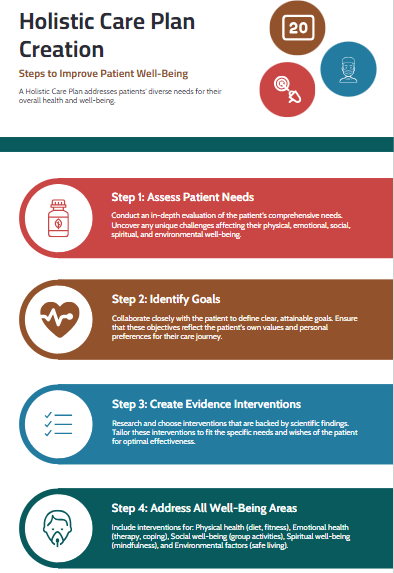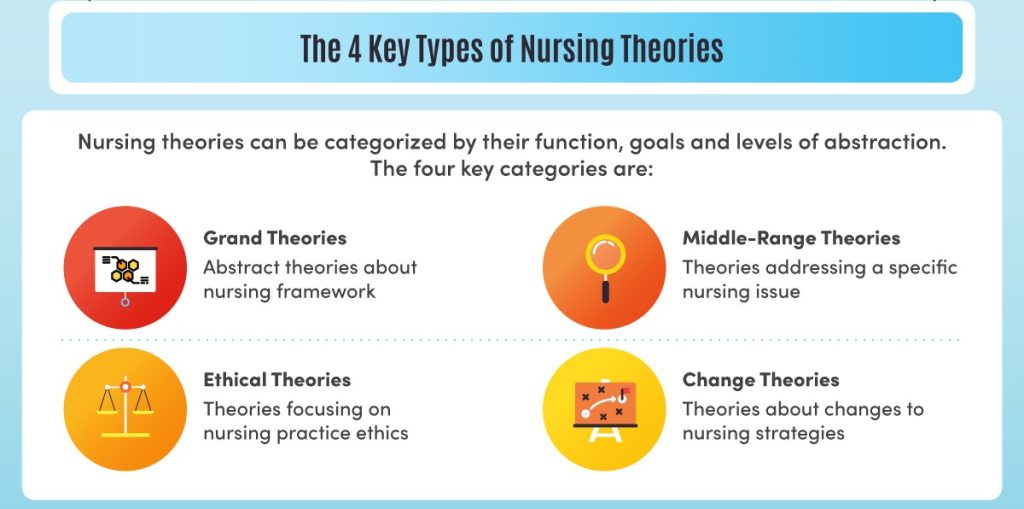
Table of Contents
The demands on nursing students are immense. Between clinical rotations, lectures, and studying, the pressure to perform well in academics can be overwhelming. One of the most significant challenges is crafting high-quality nursing assignment that demonstrate a thorough understanding of complex concepts and the ability to apply them in real-world scenarios.
This comprehensive guide aims to equip you with the knowledge and strategies needed to write outstanding nursing assignment, consistently earning top grades.
Understanding the Nursing Assignment: The Foundation of Success
Before you even begin to brainstorm ideas, a thorough understanding of the assignment requirements is absolutely crucial. This is the bedrock upon which your entire nursing assignment will be built.
- Read the Instructions Carefully: Don’t just skim the instructions. Read every word, paying close attention to the specific prompts, keywords, and limitations. Look for directives like “critically analyze,” “compare and contrast,” or “evaluate.” These verbs tell you the depth and type of analysis required.
- Identify the Learning Objectives: What specific learning outcomes is the professor trying to assess with this nursing assignment? Understanding the underlying objectives will help you tailor your response to meet those expectations.
- Clarify Ambiguity: If anything is unclear, don’t hesitate to ask for clarification from your professor or teaching assistant. It’s better to seek guidance upfront than to misinterpret the instructions and waste time on an irrelevant approach.
- Understand the Grading Rubric: If a rubric is provided, study it meticulously. This is your roadmap to success. The rubric outlines the specific criteria used to evaluate your nursing assignment and the weight assigned to each section.
- Determine the Format and Style: Is the assignment an essay, a case study, a research paper, or a reflection paper? Each format requires a different approach. Furthermore, adhere to the specified citation style (APA, MLA, Chicago, etc.) from the very beginning.
The Common Types of Nursing Assignments
Nursing is a diverse and dynamic profession, demanding a wide range of skills and specializations. From bustling emergency rooms to intimate hospice settings, nurses are the backbone of healthcare, providing crucial care and support to patients of all ages and conditions. The beauty of nursing lies in its versatility, reflected in the multitude of nursing assignment options available. The following are some of the most common types of nursing assignments, offering a glimpse into the varied and rewarding paths a nursing career can offer.
1. Medical-Surgical Nursing: The Foundation of Care
Medical-surgical nursing forms the core of hospital care. These nurses provide direct care to adult patients with a broad spectrum of medical conditions and surgical procedures. Their responsibilities are extensive and require a strong foundation in assessment, critical thinking, and patient education.
- Typical tasks include:
- Administering medications and monitoring their effects
- Wound care and dressing changes
- Monitoring vital signs and recognizing changes in patient condition
- Assisting patients with activities of daily living (ADLs)
- Providing patient and family education about their illness and treatment plan
Medical-surgical nursing is an excellent starting point for new graduates, providing a solid foundation for specialization later in their career. It exposes nurses to a vast array of medical conditions and treatments, fostering critical thinking and adaptability. This foundational experience is crucial for future nursing assignment success in more specialized areas.
2. Emergency Room (ER) Nursing: Thriving in High-Pressure Environments
ER nurses are the first point of contact for patients experiencing acute illnesses or injuries. They work in fast-paced, high-stress environments, requiring quick thinking, decisive action, and exceptional communication skills.
- Key responsibilities involve:
- Triage: Assessing patients’ conditions and prioritizing care based on severity.
- Rapid assessment and intervention in life-threatening situations.
- Administering medications and treatments under pressure.
- Providing emotional support to patients and families in crisis.
- Collaborating with physicians and other healthcare professionals to develop and implement treatment plans.
Emergency room nursing demands a high level of resilience and the ability to remain calm under immense pressure. It’s a challenging but incredibly rewarding nursing assignment for those who thrive in dynamic environments.
3. Critical Care (ICU) Nursing: Caring for the Critically Ill
Intensive Care Unit (ICU) nurses provide specialized care to patients with life-threatening conditions. They possess advanced knowledge and skills in areas like hemodynamics, mechanical ventilation, and invasive monitoring.
- Essential duties include:
- Continuous monitoring of vital signs and physiological parameters.
- Administering potent medications and titrating dosages based on patient response.
- Managing complex medical equipment, such as ventilators and dialysis machines.
- Providing specialized care to patients with multiple organ failure.
- Collaborating closely with physicians and other specialists to optimize patient outcomes.

ICU nursing requires advanced training and a deep understanding of pathophysiology. It’s a demanding yet highly rewarding nursing assignment for those passionate about critical care.
4. Pediatric Nursing: Providing Compassionate Care to Children
Pediatric nurses specialize in the care of infants, children, and adolescents. They possess a unique understanding of child development, communication techniques, and the specific needs of pediatric patients.
- Responsibilities often include:
- Administering medications and vaccinations according to age-appropriate guidelines.
- Providing developmentally appropriate care and support.
- Educating parents and caregivers about child health and safety.
- Assessing and managing pain in children.
- Creating a child-friendly and supportive environment.
Paediatric nursing requires patience, compassion, and a genuine love for children. It’s a fulfilling nursing assignment for those who enjoy working with this unique population.
5. Labor and Delivery Nursing: Witnessing the Miracle of Life
Labor and Delivery nurses provide care to women during pregnancy, labor, and postpartum. They assist in the delivery of newborns and provide support to new mothers and their families.
- Typical tasks include:
- Monitoring fetal heart rate and maternal vital signs.
- Providing pain management during labor.
- Assisting with vaginal and cesarean deliveries.
- Providing postpartum care to mothers.
- Educating new parents about newborn care and breastfeeding.
Labor and Delivery nursing is a rewarding and emotional nursing assignment. Nurses witness the miracle of birth and play a crucial role in supporting families during this transformative time.
6. Home Health Nursing: Extending Care Beyond the Hospital Walls
Home health nurses provide care to patients in their homes, promoting independence and improving quality of life. They work with a diverse population, including elderly individuals, patients recovering from surgery, and individuals with chronic illnesses.
- Responsibilities often involve:
- Assessing patients’ health status and needs in their home environment.
- Administering medications and treatments.
- Providing wound care and other specialized services.
- Educating patients and families about managing their health conditions.
- Coordinating care with other healthcare professionals.

Home health nursing requires strong assessment skills, independence, and excellent communication abilities. This nursing assignment offers the opportunity to build strong relationships with patients and their families, empowering them to manage their health at home.
These are just a few of the many types of nursing assignments available. The field of nursing offers a diverse range of career paths, allowing nurses to find a specialty that aligns with their interests, skills, and values. As healthcare continues to evolve, the demand for skilled and compassionate nurses will only grow, making nursing a stable and rewarding career choice. Each nursing assignment offers unique challenges and opportunities for professional growth, allowing nurses to make a meaningful difference in the lives of their patients.
Research: Gathering the Evidence
A strong nursing assignment is built upon a solid foundation of evidence-based research. This means relying on credible and peer-reviewed sources to support your claims and arguments.
- Identify Reliable Sources: Stick to academic journals, textbooks, government reports, and reputable healthcare organizations. Avoid relying on unreliable sources like Wikipedia or personal blogs.
- Utilize Library Resources: Your university library is a treasure trove of information. Librarians are experts in research and can guide you in finding relevant databases, journals, and books.
- Use Keywords Effectively: Develop a list of relevant keywords related to your topic. Experiment with different combinations of keywords to broaden or narrow your search results.
- Take Detailed Notes: As you research, take thorough and organized notes. Include the author, title, publication date, and page numbers of each source. This will save you time and effort when you are citing your sources later.
- Synthesize Information: Don’t just copy and paste information from your sources. Synthesize the information, identify key themes, and connect the evidence to your own arguments.
- Evaluate Sources Critically: Not all sources are created equal. Evaluate each source for its credibility, bias, and relevance to your topic. Consider the author’s credentials, the publisher, and the date of publication.
Planning and Outlining: Structuring Your Argument
A well-structured nursing assignment is easy to read and understand. A clear outline helps to organize your thoughts, present your arguments logically, and ensure that you cover all the necessary points.
- Develop a Thesis Statement: A strong thesis statement is the heart of your essay. It should clearly state your main argument and provide a roadmap for the rest of the paper. The thesis statement should be concise, arguable, and specific.
- Create an Outline: An outline is a skeletal framework of your essay. It should include the main points you want to make and the supporting evidence you will use to back them up.
- Organize Your Ideas Logically: Group related ideas together and arrange them in a logical sequence. Consider using chronological order, spatial order, or order of importance, depending on the nature of your topic.
- Allocate Time to Each Section: Break down the assignment into manageable sections and allocate a specific amount of time to each section. This will help you stay on track and avoid procrastination.
- Consider the Flow of Your Argument: Ensure that each paragraph flows smoothly into the next. Use transitional words and phrases to connect your ideas and create a cohesive narrative.
Writing: Crafting a Compelling Narrative
Writing a successful nursing assignment requires clear, concise, and professional language. Avoid jargon, slang, and overly complex sentence structures.
- Start with a Strong Introduction: The introduction should grab the reader’s attention, provide background information on the topic, and state your thesis statement.
- Develop Clear and Concise Paragraphs: Each paragraph should focus on a single idea and be supported by evidence from your research.
- Use Evidence to Support Your Claims: Back up your arguments with evidence from credible sources. Cite your sources correctly using the specified citation style.
- Write in a Professional Tone: Maintain a professional and objective tone throughout the paper. Avoid expressing personal opinions or biases.
- Use Proper Grammar and Spelling: Proofread your paper carefully for grammar and spelling errors. Use a grammar checker to catch any mistakes you may have missed.
- Demonstrate Critical Thinking: Go beyond simply summarizing information. Analyze, evaluate, and synthesize the evidence to demonstrate your understanding of the topic.
Critical Thinking and Analysis: Going Beyond the Surface
Nursing is a profession built on critical thinking. Your nursing assignment should reflect your ability to analyze complex situations, evaluate evidence, and make sound judgments.
- Identify Assumptions: What underlying assumptions are being made in the literature you are reading? Challenge those assumptions and consider alternative perspectives.
- Evaluate Evidence: Is the evidence presented reliable and valid? Are there any limitations to the study or research?
- Synthesize Information: How can you connect different pieces of information to create a more complete understanding of the topic?
- Consider Different Perspectives: Explore different viewpoints on the issue. Acknowledge potential biases and limitations in your own perspective.
- Draw Conclusions: Based on your analysis, what conclusions can you draw? What are the implications of your findings for nursing practice?

Referencing and Citation: Giving Credit Where It’s Due
Proper referencing is essential to avoid plagiarism and to give credit to the authors whose work you have used.
- Choose the Correct Citation Style: Ensure that you are using the citation style specified by your professor (APA, MLA, Chicago, etc.).
- Cite Your Sources Accurately: Follow the guidelines for in-text citations and reference lists. Pay attention to details like punctuation, capitalization, and formatting.
- Use a Citation Management Tool: Consider using a citation management tool like Zotero or Mendeley to help you organize your sources and generate citations automatically.
- Check for Plagiarism: Before submitting your nursing assignment, use a plagiarism checker to ensure that your work is original.
Proofreading and Editing: Polishing Your Work
The final step in writing a successful nursing assignment is proofreading and editing your work. This is your opportunity to catch any errors in grammar, spelling, punctuation, and formatting.
- Read Your Paper Aloud: Reading your paper aloud can help you identify awkward phrasing and grammatical errors.
- Ask Someone Else to Proofread: A fresh pair of eyes can often catch errors that you have missed.
- Use a Grammar Checker: Run your paper through a grammar checker to identify any remaining errors.
- Check for Consistency: Ensure that your formatting, citations, and language are consistent throughout the paper.
- Review the Grading Rubric One Last Time: Before submitting your nursing assignment, review the grading rubric one last time to ensure that you have met all the requirements.
Time Management: A Key to Success
Effective time management is crucial for completing nursing assignment successfully. Procrastination can lead to rushed work, increased stress, and lower grades.
- Create a Schedule: Develop a realistic schedule for completing the assignment. Break down the task into smaller, more manageable steps.
- Set Deadlines: Set deadlines for each stage of the writing process, including research, outlining, writing, and editing.
- Avoid Distractions: Minimize distractions while you are working on the assignment. Turn off your phone, close social media tabs, and find a quiet place to study.
- Take Breaks: Take regular breaks to avoid burnout. Get up and stretch, take a walk, or do something you enjoy.
Seeking Help When Needed
It’s okay to seek help when you are struggling with a nursing assignment. There are many resources available to support you.
- Talk to Your Professor: Your professor is a valuable resource. Don’t hesitate to ask for clarification or guidance.
- Visit the Writing Center: Most universities have writing centers that offer tutoring and feedback on writing assignments.
- Form a Study Group: Collaborate with other students in your class. Share ideas, discuss concepts, and proofread each other’s work.
There are also online resources available, offering services such as nursing assignment help, where you can get expert guidance and feedback. If you’re feeling overwhelmed, Nursing Papers can provide professional help with nursing assignment. Our nursing assignment writing services cover topic suggestion, assignment writing, proofreading, editing, formatting and plagiarism removal. We can help you with all types of assignments including essays, research papers, case studies, thesis and dissertations.
Frequently Asked Questions about Nursing Assignment
Nursing school comes with its own set of challenges, and navigating the complexities of academic work is definitely one of them. Many students find themselves with questions about their nursing assignment. Let’s tackle some frequently asked questions to make the process smoother.
Understanding the Basics
- What’s the purpose of a nursing assignment? Assignments in nursing are designed to assess your understanding of core concepts, critical thinking abilities, and practical application of knowledge to real-world patient scenarios. They encourage you to research, analyze, and synthesize information effectively.
Tackling Common Challenges
- I’m struggling to choose a relevant topic. What should I do? First, carefully review the assignment guidelines. Brainstorm ideas aligned with your interests and the curriculum’s focus. Consult with your professor or teaching assistant for guidance and feedback on your potential topics.
- How do I ensure my nursing assignment meets the marking criteria? Deconstructing the assessment rubric is key! Understand the weightage of different sections like introduction, methodology, analysis, and conclusion. Align your content with the specific requirements to maximize your grade.
Seeking Support
- Where can I find reliable resources for my nursing assignment? Utilize academic databases like PubMed, CINAHL, and Cochrane Library. Your university library offers a wealth of scholarly articles, textbooks, and research journals. Remember to cite your sources meticulously to avoid plagiarism.
Understanding the intricacies of a nursing assignment is crucial for academic success. By addressing these common questions and utilizing available resources, you can confidently tackle your assignments and excel in your studies. A successful nursing assignment demonstrates your knowledge and application skills.
By following these steps, you can significantly improve your ability to write successful nursing assignment and achieve academic success in your nursing program. Remember to plan, research, write, and edit carefully, and don’t be afraid to seek help when you need it. Good luck!











